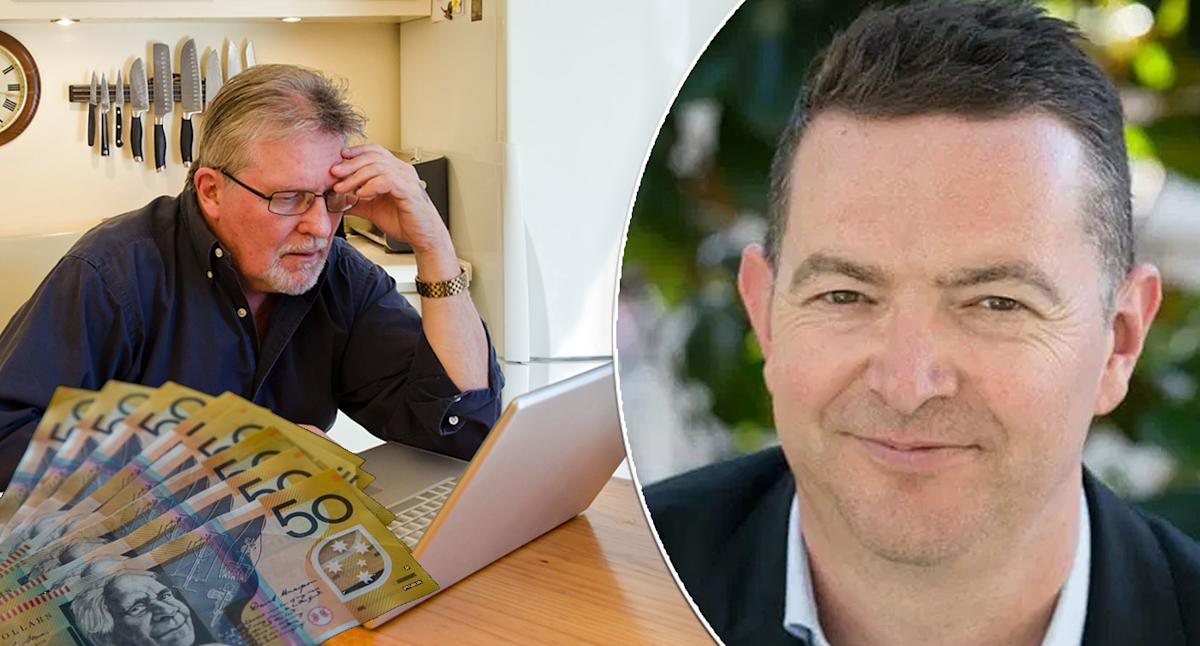ASIC’s Alan Kirkland (right) said SMSFs weren’t suitable for everyone and there were costs, responsibilities and risks to be aware of. (Source: ASIC/Getty)
Australians are being urged to “slow down” before making major decisions around switching their superannuation funds. The corporate regulator has raised fresh concerns about people’s retirement savings being “at risk” when given bad advice to set up a self-managed super fund (SMSF).
The SMSF sector is growing in popularity in Australia and now accounts for around $1 trillion, or nearly a quarter of the $4.3 trillion superannuation sector. A SMSF is a private retirement fund that you manage yourself where you choose your own investments and insurances, compared to an industry or retail super fund which is far more common.
ASIC commissioner Alan Kirkland said people often set up an SMSF because they thought it would give them more control over their retirement savings. But the reality is they aren’t suitable for everyone and they aren’t regulated by APRA, the country’s prudential regulator.
“SMSF trustees should be aware of the associated costs, responsibilities and risks,” he warned on Thursday after research by ASIC produced some alarming findings.
RELATED
“People who move their super from an APRA-regulated fund to an SMSF also lose important protections, including the benefits of prudential regulation and the ability to make a complaint about the fund or its trustees to AFCA.”
ASIC reviewed 100 financial advice files related to establishing SMSFs and found a whopping 62 of them failed to demonstrate compliance with the best interests duty.
More than a quarter (27 files) raised concerns about client detriment relating to recommendations to set up the SMSF.
It’s worth noting the sample wasn’t selected with the intention of being random or representative of the financial advice sector. Rather, ASIC identified instances of SMSFs being recommended when it was not suitable.
Kirkland warned financial advisers who recommended clients establish SMSFs without properly considering whether it suited them were “not helping them take control of their future” but “placing it at risk”.
Do you have a story to share? Contact tamika.seeto@yahooinc.com
ASIC found poor financial advice related to establishing an SMSF could be putting retirement savings ‘at risk’. (Source: Getty)
In the year to June 2025, 41,980 new SMSF funds were established. This was up from the 33,032 created the previous year.
Over the last 14 years, the number of SMSFs has grown at about double the rate of the population. There are now 1.2 million members of SMSFs.
Story Continues
While the growth of the market isn’t a concern itself, ASIC said poor advice or ill-informed decisions to establish an SMSF could have a “significant detrimental impact on the lifestyle and retirement outcomes of Australians”.
SMSF Association CEO Peter Burgess said ASIC’s review served as a critical reminder of the need for the SMSF sector to maintain strong professional advice standards.
The message follows the collapses of Shield and First Guardian Master Fund, with about 12,000 Australians thought to have lost more than $1 billion in retirement savings.
Shield Master Fund and First Guardian Master Fund are managed investment schemes. ASIC found many people invested their money after being contacted by lead generators and referred to by financial advisers.
These advisers often told investors to roll over their existing super balances into a choice super fund on the platform, or set up an SMSF to facilitate the investment.
Kirkland said the collapses showed the “worst-case scenario for what happens when people receive poor advice to switch superannuation funds and make high-risk investments”.
ASIC chair Joe Longo described it as a “super switching catastrophe”.
“It all started with ordinary Australians, in many cases, moving, in my words, their super from a relatively safe, conventional environment into a high-risk environment,” he told the National Press Club on Wednesday.
“There’s plenty of blame to go around for what went wrong there. And one of the things we’re suggesting is that we need to slow people down a bit.”
Longo said most people put time into buying a house or a car, or other major financial investment, and don’t do it on the same day.
“Unfortunately, because of the industrialisation of the approach to this misconduct, a lot of Australians were talked into moving their super on the same day or the next day. It’s pretty bad,” he said.
Get the latest Yahoo Finance news – follow us on Facebook, LinkedIn and Instagram.

